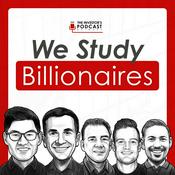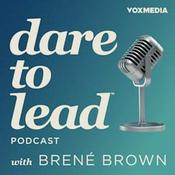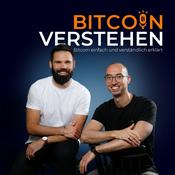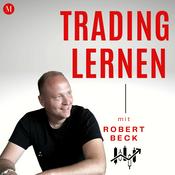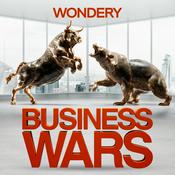26 Episoden

The EA "LBO"
15.10.2025 | 37 Min.
In this Special Edition of the GameCraft podcast, Mitch and Blake discuss the $55 billion leveraged buy-out of Electronic Arts by the Private Investment Fund of Saudi Arabia, Siliver Lake Partners, and Affinity Partners -- the largest LBO in US history, and the second largest transaction in the history of the video game business after Microsoft's $69 billion acquisition of Activision. They discuss the deal itself (and how to properly characterize it), some of its immediate implications, and why Mitch's take on the possibilities created by EA going private went from excitement to disappointment in the two weeks following the deal's announcement.

The Sum of the Parts (Ep. 24)
21.5.2025 | 1 Std. 9 Min.
Mitch and Blake explore the role of consolidation -- primarily through mergers and acquistions -- in building some of the biggest and most durable companies in gaming. They begin with a discussion of the four major strategic uses of mergers and acquisitions: economies of scale, entry into new markets, control of talent and intellectual property, and new technologies. They provide many examples along the way. Mitch argues that M&A is so important to the business that it's actually difficult to avoid ending up on either side of that equation, as an acquirer or as a target of aquisition. Mitch and Blake map that idea onto their dictum that venture backed companies need to decide whether they are building a product or a company. They talk briefly about the financial engineering side of M&A, particularly in the form of the "roll-up" -- where companies are entirely build from acquisitions with a (usually mistaken) hope that the value of the whole will exceed the sum of the parts. They discuss why this rarely works, and try to explain why Embracer is in such trouble as a result. They close the episode with a closer look at EA, Activision, Sony, Microsoft and other companies and show how their acquisitions map clearly onto the four main consolidation strategies. They argue that leverage is the key component of M&A success -- that buying companies against some pre-existing competitive advantage (rather than just buying randomly) results in a much higher likelihood of success.

AI as a Platform (Ep. 23)
14.5.2025 | 52 Min.
Last season, Mitch and Blake discussed the implications of new Large Language Model Artificial Intelligence in games. In this episode, they return to the topic, this time focusing on games that are using AI as a platform -- meaning, the games are predicated on the use of LLMs to manage gameplay in some way. After introducing the central ideas, they list a series of games they have encountered that make use of these new technologies, from relatively modest text-based adventure and role playing games, to more sophisticated games involving dialog with digital characters, dynamic narratives, and adaptive game systems. They briefly discuss the vibe coding phenomenon, and offer some encouraging comparisons to the early PC modding communities as well as the vibrant Nordic "demo scene" they discussed in GameCraft S1:E3. Finally, they take a sidebar to discuss the labor implications of AI in gaming, and argue that the business is at a crossroads -- and that the choice of the path forward has massive implications for future growth and relevance. They end with a discussion of the highly relevant exchange on this issue between the great John Carmack and a Quake fanboi over the use of AI in game production.

Hasbro and Lego (Ep. 22)
07.5.2025 | 44 Min.
Mitch and Blake look at two of the largest toy companies in the world, Hasbro and Lego, and discuss their divergent but ultimately very successful forays into the games business as licensors of intellectual property. Your hosts discuss how both Hasbro and Lego tried to enter the games business directly as developers and publishers of digital games in the late 1990s, how they had very different experiences of success and failure, and how both decided to exit the business in the early 2000s only to return as licensors rather than publishers later in that decade. Mitch tells the story about why he went to Hasbro's private pre-Toy Fair meeting in Florida in the late 90s. They then explore the licensing stategies of both companies in depth. They discuss the transformative partnership between Lego and Traveller's Tales, and the complexities of using IP licensed by Lego for toy sets, like Star Wars, as the narrative universes for Lego's video games. They discuss the rise of Wizards of the Coast inside Hasbro after the 1998 acquisition (culminating in the accession of Chris Cox, head of WoTC, to the CEO position of Hasbro), resulting in two defining license deals: Baldur's Gate 3 to Larian, and Monopoly Go to Scopely. Mitch and Blake close the episode with a look at how a huge market for block-based sandbox play -- that should have been in Lego's wheelhouse -- was captured by new entrants like Minecraft and Roblox. They also speculate about Hasbro's challenges replicating their recent licensing success in the near future.

The Venture Deadpool (Ep. 21)
30.4.2025 | 1 Std. 6 Min.
Mitch and Blake address the unpleasant topic of how and why venture-backed games companies fail. They look first at the nature of venture financing and the inherent differences between venture and publisher money. This leads to a conversation about how developers who were used to working with publishers treated venture capital like production financing as opposed to company financing, and why that distinction matters. They then turn to the flawed strategies and tactics of gaming funds and investors, who tried to make up for their lack of judgment and taste by placing many bets on startup studios. They address several other factors that made games investing tricky for venture capitalists who often had little experience managing creative businesses and lack a basic understanding of the peculiarities of game production. Mitch and Blake look at reasons why venture backed companies fail, and why catastrophic failure appears to be more common among venture-backed games companies than other software companies. They discuss the concept of the "naked B," why growth rounds are rare in games companies, and why games companies are uniquely difficult for conventional venture capitalists to evaluate. They conclude with a look at some examples of companies that failed to return capital to investors -- in some cases very significant amounts of capital -- and discuss a few companies that appear to be in danger of following suit. They explain why the cumulative effect of these failures is one of the factors behind the current difficulties game companies experience raising money from venture capitalists. [Ed.: since recording this episode, one of the companies in the deadpool, Elodie Games, has shut down.]
Weitere Wirtschaft Podcasts
Trending Wirtschaft Podcasts
Über Gamecraft
Höre Gamecraft, Alles auf Aktien – Die täglichen Finanzen-News und viele andere Podcasts aus aller Welt mit der radio.de-App

Hol dir die kostenlose radio.de App
- Sender und Podcasts favorisieren
- Streamen via Wifi oder Bluetooth
- Unterstützt Carplay & Android Auto
- viele weitere App Funktionen
Hol dir die kostenlose radio.de App
- Sender und Podcasts favorisieren
- Streamen via Wifi oder Bluetooth
- Unterstützt Carplay & Android Auto
- viele weitere App Funktionen


Gamecraft
App laden,
loshören.












